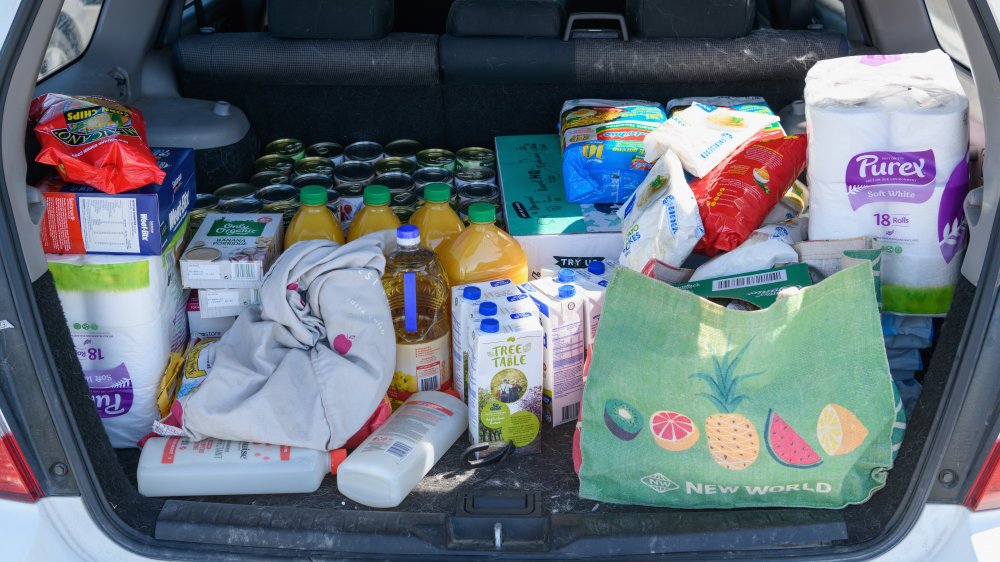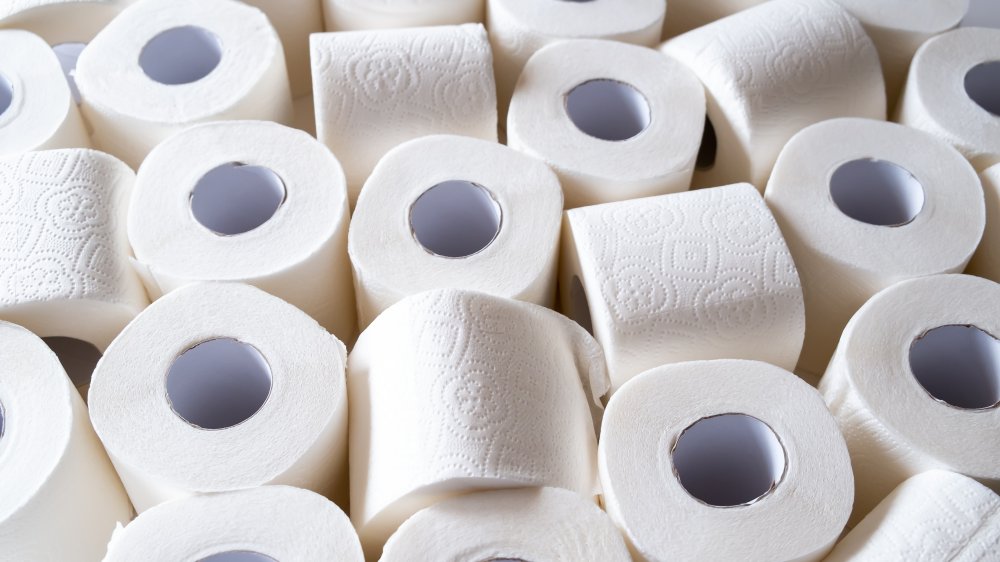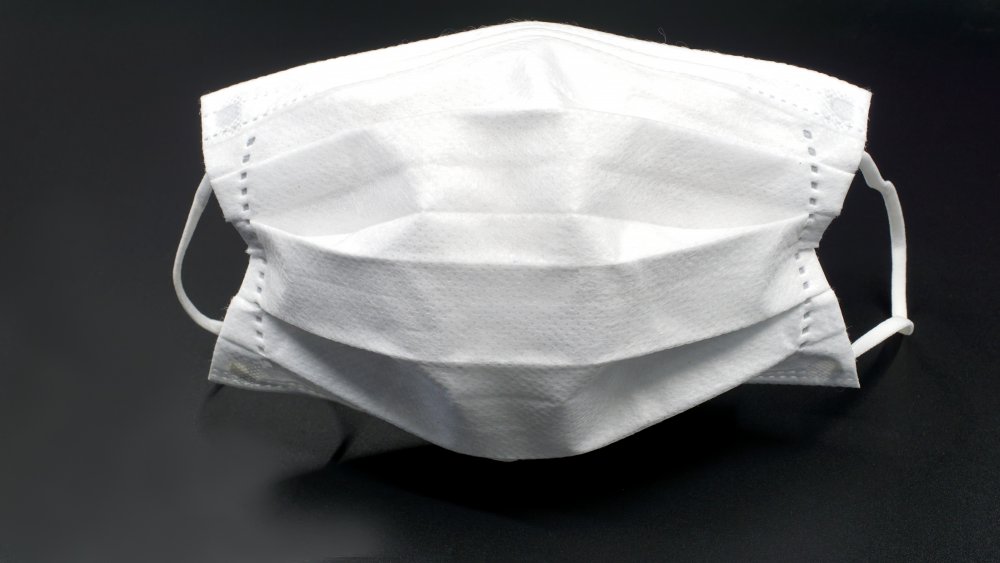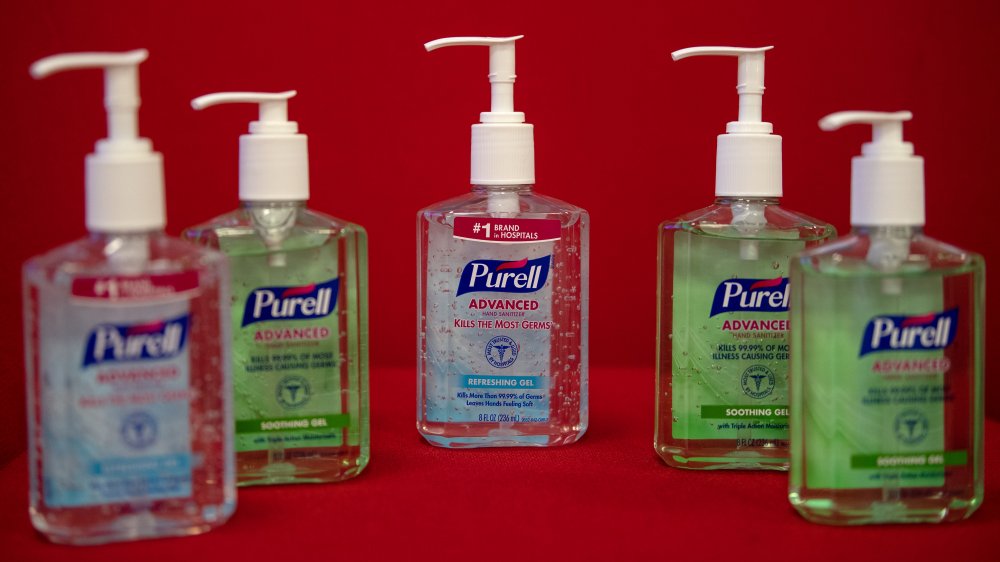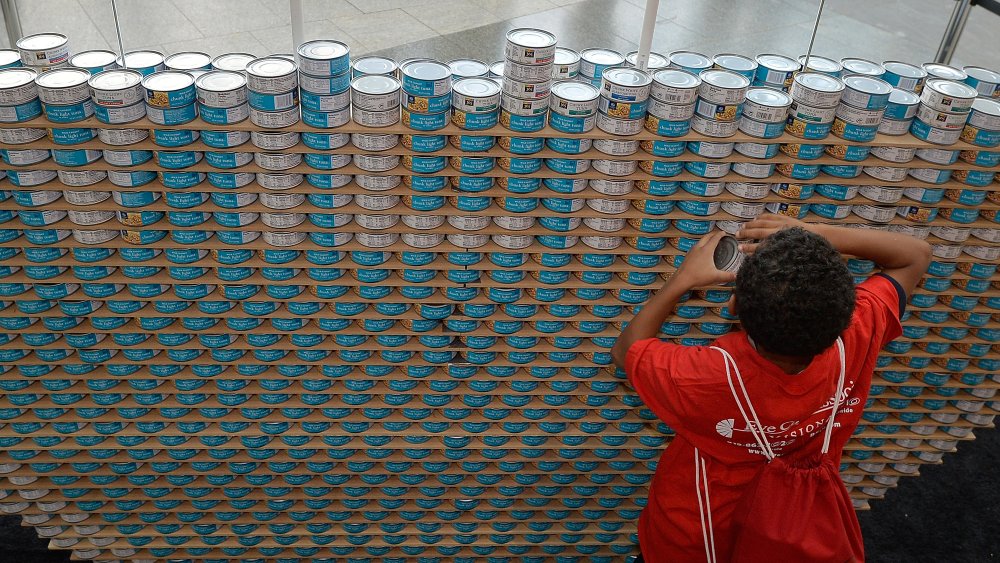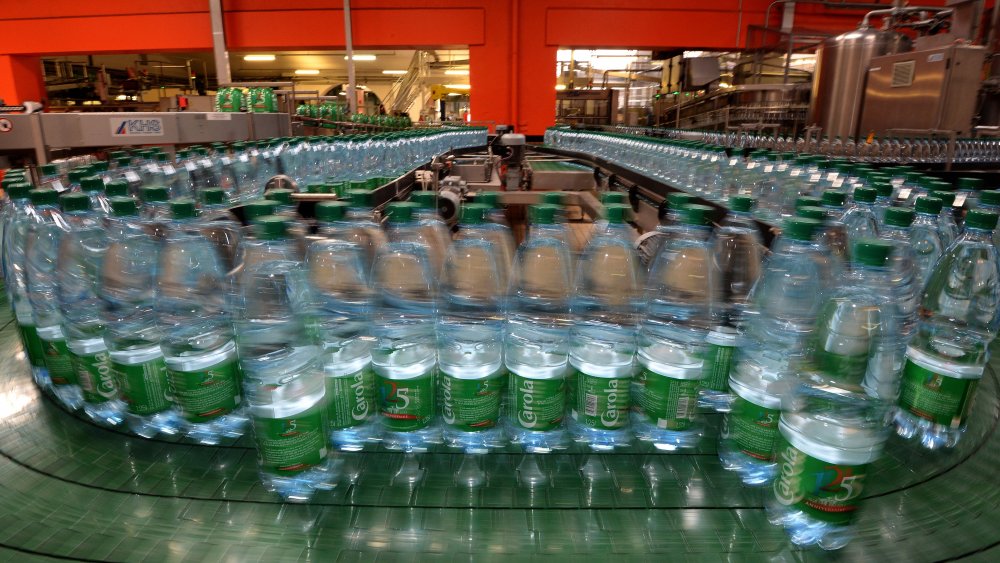Items You Shouldn't Bother Hoarding During The Coronavirus Outbreak
By now we've all heard horror stories of empty store shelves — hand sanitizer is not to be had for love nor money (or at least not a reasonable amount of either commodity), while toilet paper shortages are bringing out some truly reprehensible behavior. When it comes to food items, stores report being unable to keep some pantry staples in stock, with bread being in particularly high demand.
The question everyone's asking is — is this panic buying really necessary? While coronavirus is wreaking havoc on the entertainment and fashion industries and even on personal relationships, one thing it's not significantly impacting to date is the grocery supply chain. As supermarket company H-E-B tweeted a few days ago: "H-E-B has been preparing for #COVIDー19 & we are in a strong position to keep replenishing shelves."
So what does that mean for smart shoppers? It means that you really don't need to be hoarding at all. Even if you're self-quarantining for a few weeks, you should still be able to get groceries and meals delivered, though it might not hurt to have a few staples on hand. You do not, however, have to cash out your 401K to pay scalper prices for the last bottle of water or roll of TP to be had this side of the zombie apocalypse, since there really aren't any shortages that can't be overcome with a little patience — or a few workarounds.
You don't really need that much toilet paper
Yes, toilet paper is something we all use multiple times per day (especially if we're women). But no, you probably don't use — or need — quite as much as you think. We ran the numbers, and it looks like half a roll of TP should see a man through two weeks at home, while a woman may need two and a half rolls for the same time period (perhaps TP-based matchups will become a coronavirus dating thing, as women with only two rolls will be ISO men with half a roll to spare).
Just in case the unthinkable happens and you should happen to run out at a time when the shelves remain bare of this product, things are still less bleak than they may seem. There are actually quite a few toilet paper alternatives that can be pressed into service for emergency use, including rags, crumpled paper, and plain old water.
Surgical masks won't protect you from infection
Surgical masks started to sell out as soon as the first U.S. cases of COVID-19 were reported. Although it's understandable that people were wishing to protect themselves from coronavirus any way they could, it turns out that these face masks don't really prevent the wearer from being infected.
The Centers for Disease Control and Prevention (CDC) admits that face masks don't do an effective job of filtering small particles from the air, and that there will likely be leakage around the edges of the mask each time the wearer inhales. What surgical masks are intended for is containing any infected droplets that would otherwise be released into the atmosphere when the mask wearer coughs or sneezes, so these masks are meant to be worn by patients who have suspected or confirmed cases of COVID-19. Sadly, surgical mask hoarders have reduced the supply of masks available for those who really need them, and this puts all of us (mask hoarders included) in danger.
Hand sanitizer really isn't as good as plain old soap
While hand sanitizer is a quick, convenient way to clean up on the go, we're not really "on the go" all that much these days — everything's canceled, we're all at home socially isolating, so who doesn't have the time to wash their hands with soap and water? Hand washing is actually far more effective at killing most types of germs than alcohol-based gel sanitizers. The CDC recommends that you use soap and water for handwashing whenever possible, since soap reduces all types of hand germs.
Hand sanitizers, on the other hand (actually on both of them), are unable to eliminate some germ types. Sanitizers also tend to be less effective when hands are visibly dirty or greasy. Soap will allow you to remove the dirt and grease and to kill the germs that may lie beneath these, while hand sanitizer may just stick to the top surface. Hand sanitizers are also ineffective when it comes to removing harmful chemicals such as pesticides from the hands — perhaps not a concern unless you plan to do a lot of social distancing gardening, but still, it's one more example of how hand sanitizers won't clean your hands nearly as well as good old soap. As an added bonus, soap is one of those items that's actually not flying off the store shelves, so there should be plenty in stock.
Don't stockpile food you're not going to eat
This may go without saying, but don't let panic-buying spur you into buying foods you wouldn't ordinarily eat. Sure, maybe you're just doing some emergency planning, but still, any food you'll buy is food that you'll probably be eating someday — if not, then it's just a waste of money. And even if we do end up in a situation where we're spending weeks essentially homebound, like we're snowed in without the snow, does that really mean you want to be surviving off nothing but canned tuna and sauerkraut?
Oh, and just in case you want to go full-on doomsday prepper and get a head start on readying for some as-yet-unforeseen horror of at least half a year's duration (which is something no one is predicting with coronavirus), Off the Grid News warns that saltine crackers and cereal get stale, canned tomato products may leak, and even flour and brown rice tend to go "off" after six months. If you plan to stock the ol' doomsday bunker with these items, it's suggested that you rotate them in and out of your current consumables. If you need staples that will stay edible for an extended period of time, try white rice, white sugar, and rolled oats — all are better bets than the aforementioned items.
Stockpiling water is entirely unnecessary
Sure, it makes sense to have bottled water on hand if you live in a flood-prone area or on an earthquake fault line or even in one of the snow zone states when a winter storm is in the forecast. Natural disasters of this type do have the habit of disrupting utility delivery, and water is something you definitely can't live without. As Slate points out, though, coronavirus, while natural and most certainly a disaster, isn't likely to interfere with our water supply. No matter how tough things got in Wuhan, China, their water stayed on, and so will ours.
What's more, water isn't even something like food that you have to go out of the house to get, thus facing the risk of infection via the dreaded human interaction. You can socially distance to your heart's content, and still have all the water you need with one twist of the tap. Bottled water, however, does no good for the planet or your pocketbook, so you can safely skip stalking the store aisles waiting for this product to return to the shelves.
